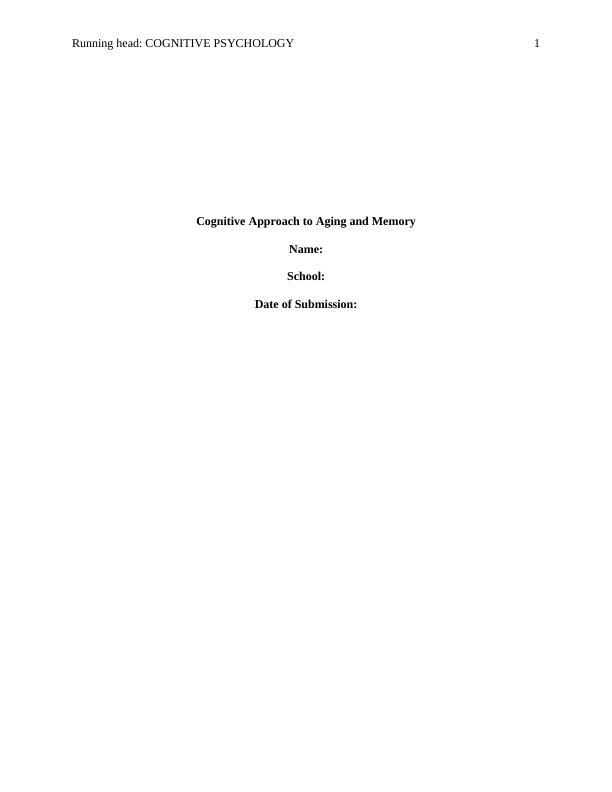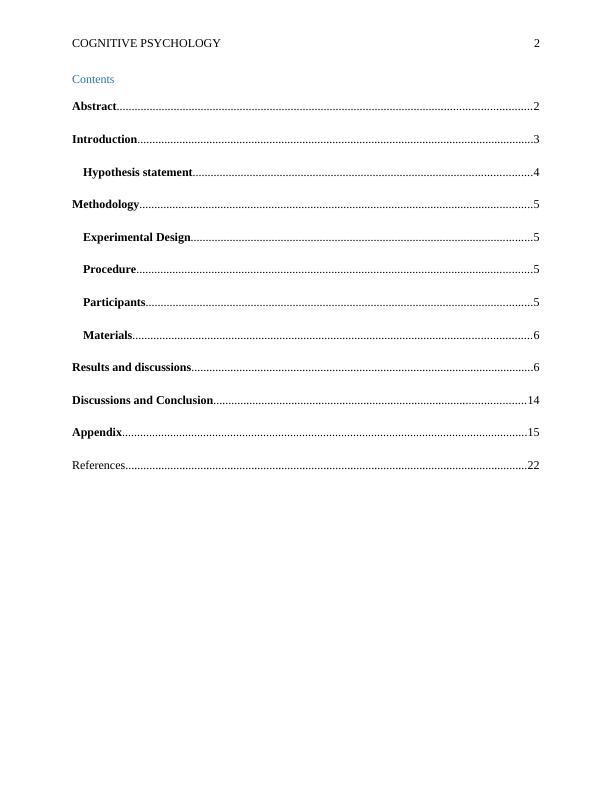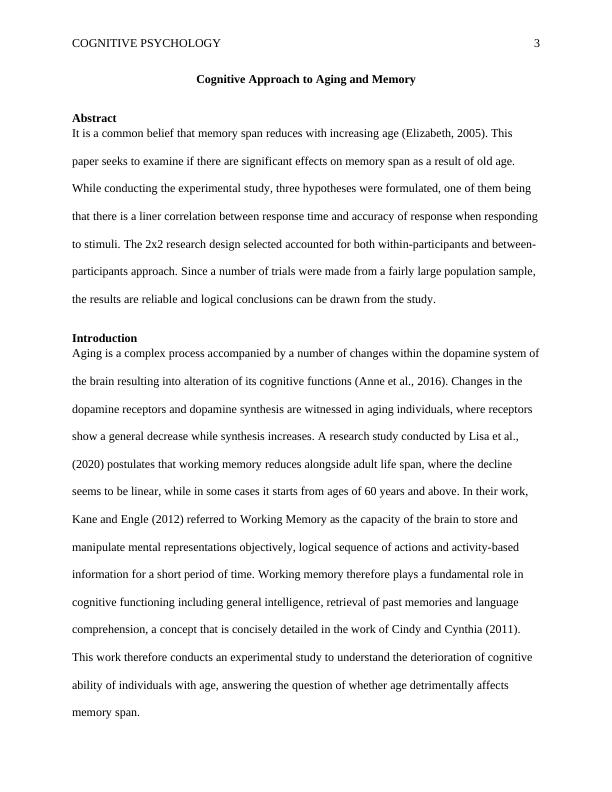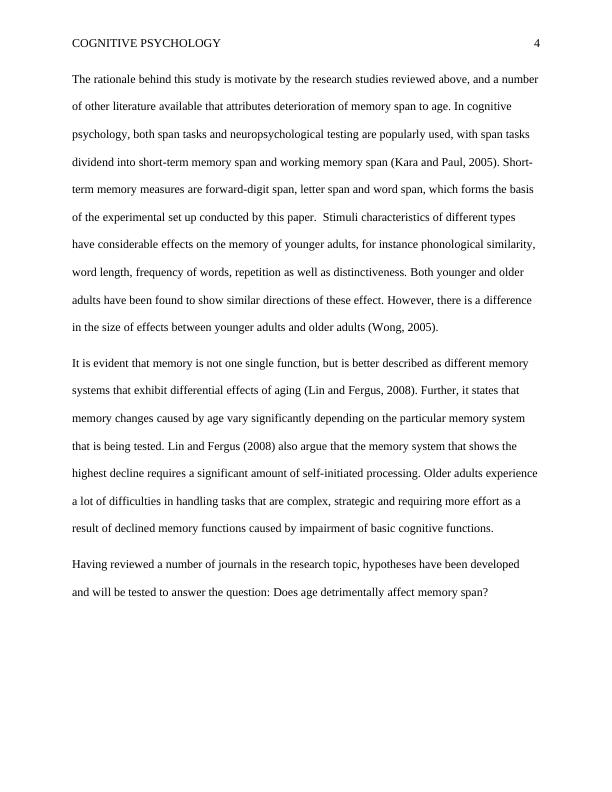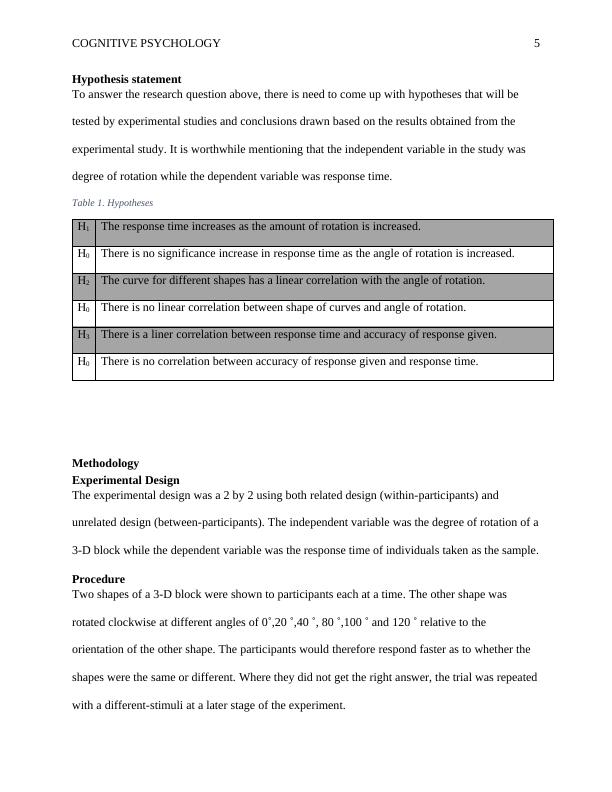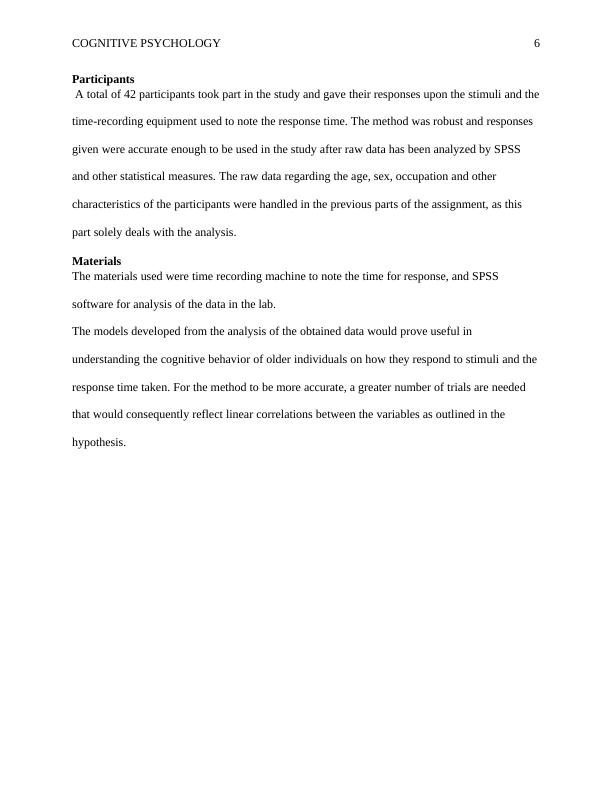Cognitive Approach to Aging and Memory Name: School
Prepare an experimental report based on the CogLab 'Memory Span' experiment and discuss the experimental results which answer the research question: Does age detrimentally affect memory span?
23 Pages2875 Words178 Views
Added on 2022-08-15
About This Document
COGNITIVE PSYCHOLOGY 2 COGNITIVE PSYCHOLOGY 2 Cognitive Approach to Aging and Memory Name: School: Date of Submission: Contents Abstract 2 Introduction 3 Hypothesis statement 4 Methodology 5 Experimental Design 5 Procedure 5 Participants 5 Materials 6 Results and discussions 6 Discussions and Conclusion 14 Appendix 15 References 22 Cognitive Approach to Aging and Memory Abstract It is a common belief that memory span reduces with increasing age (Elizabeth, 2005). This work therefore conducts an experimental study to understand the deterioration of cognitive
Cognitive Approach to Aging and Memory Name: School
Prepare an experimental report based on the CogLab 'Memory Span' experiment and discuss the experimental results which answer the research question: Does age detrimentally affect memory span?
Added on 2022-08-15
ShareRelated Documents
End of preview
Want to access all the pages? Upload your documents or become a member.
Psychology Assignment | Effects Of Age On Rate Of False Recognition
|9
|1242
|120
Effect of Ageing on Memory Retention: A Study on Younger and Older Adults
|19
|4106
|264
The length of the memory span
|13
|3100
|13
Psychological Research Methods
|18
|2535
|71
Cognitive Inhibition Theories and Neuropsychological Measures: A Study on Younger and Older Adults
|29
|8251
|308
Anxiety, depression, cognitivity, and cognitive decline among elder adults and younger adults
|35
|15634
|293

